737-215-3211

Dog Proofing 101: A List of Toxic Household Items To Avoid With Puppies
As a new or seasoned dog owner, you know that puppies are bundles of joy, curiosity, and boundless energy. They explore the world with their mouths and noses, often getting into things they shouldn’t. This natural curiosity, while adorable, can sometimes lead them into danger, particularly when it comes to common household items that are toxic to them.
Let's talk about the everyday items and substances around your home that could pose a risk to your puppy's health. From the foods in your pantry to the plants in your living room, and the cleaning products under your sink, we'll cover it all. Shall we start?
Why You Hide To Common Foods & Toxic Substances From Your Puppies
Hiding common foods and toxic substances, like salty snack foods, baking chocolate, and raw bread dough, from puppies is crucial for several important reasons:
Preventing Poisoning
Many common household foods and substances are toxic to a dog's stomach. For instance, foods like dark chocolate, grapes and raisins, onions, garlic, and products containing xylitol (a common sweetener in sugar-free products) can be extremely harmful or even fatal to dogs. By keeping these items out of reach, you prevent accidental poisoning.
Protecting Digestive Health
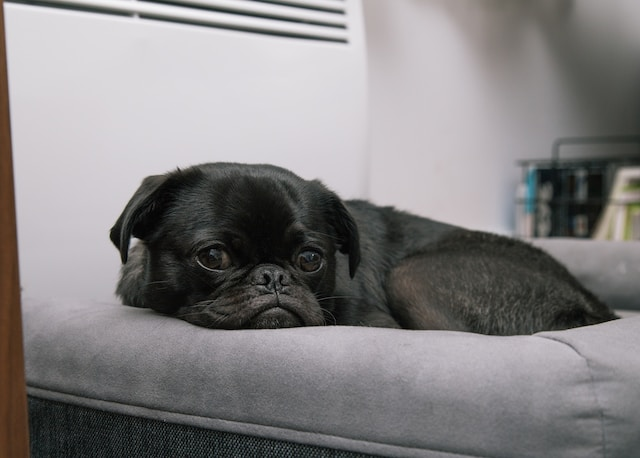
Puppies have sensitive digestive systems. Eating inappropriate foods or substances can lead to gastrointestinal distress, including vomiting, diarrhea, and in severe cases, obstruction or perforation of the digestive tract.
Preventing Choking Hazards
Small items, whether food or non-food substances, can pose choking hazards to curious puppies. They might not discern what is safe to swallow, leading to choking or internal blockages. It's best to puppy-proof your home before bringing a new pup.
Avoiding Behavioral Problems
Puppies are in a critical learning phase. Allowing them access to inappropriate items can encourage bad habits, like scavenging or destructive chewing, which can be hard to correct later. Get your puppies age-appropriate dog toys and Zinger Professional Dog Aluminum Cage.
Related: A Paw-sitive Start: The Ultimate Guide to Spotting and Tackling Puppy Behavior Problems Early
Ensuring Overall Health and Safety
A puppy’s immune system and nervous system are still developing, making them more susceptible to toxins and bacteria present in certain foods and household substances. Protecting them from these hazards is essential for their overall health and well-being. As dog owners, it's our responsibility to ensure our dog eats healthy and nutritious foods.
Reducing Veterinary Emergencies
Accidental ingestion of toxic substances or inappropriate foods can lead to emergency veterinary visits. These sudden visits are distressing for both the puppy and the owner, not to mention expensive. That's why, don't forget to research before feeding your pets any tasty treats.
Promoting Positive Training and Development
By controlling a puppy's environment and ensuring only safe items are accessible, you help in their positive training and development, teaching them what is safe to interact with and what is not. Use the power of positive reinforcement, dog training collars, treats, and dog toys.
Common Toxic Household Items
Puppies have a natural curiosity and a tendency to explore the world with their mouths. They're always at risk of encountering various common household items that can be toxic to them. Here's a list of some of these toxic items:
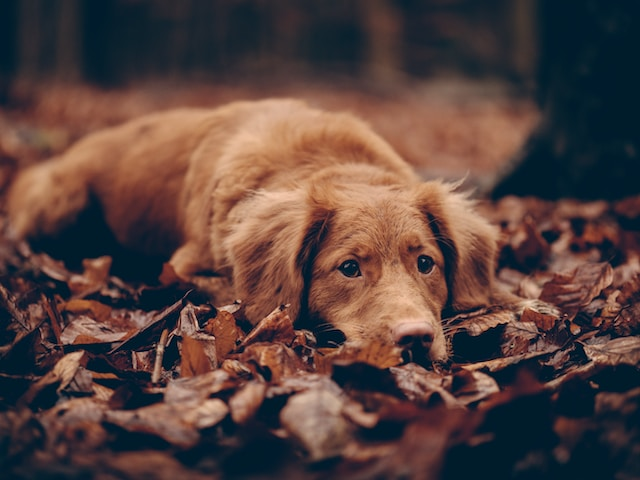
Foods
Certain common foods are safe for humans to eat but can be harmful, and sometimes even deadly, when a dog ingests them. Dog owners need to be aware of these and keep the following out of reach of their beloved pets.
-
Chocolate: Contains theobromine and caffeine, which are toxic to dogs. Dark chocolate is more dangerous than milk chocolate.
-
Grapes and Raisins: Can cause kidney failure in dogs. Even a small amount can be very harmful, especially for puppies.
-
Garlic and Onions: When ingested, can destroy a dog's red blood cells, leading to anemia. It can also cause red blood cell damage. This includes powdered, raw, cooked, or dehydrated forms.
-
Xylitol: It is a sweetener found in many sugar-free foods and products such as gum, candies, and some peanut butter. It can cause insulin release, which leads to liver failure. In some cases, xylitol leads to serious problems and even death.
-
Alcohol: Even small amounts of alcohol, including those in food products like rum cake, can be toxic to dogs. When your dog eats a lot of alcoholic beverages or alcoholic human foods, it can lead to alcohol poisoning and even death.
-
Caffeine: Found in coffee, tea, cola, and energy drinks. Like chocolate, caffeine is a stimulant that can cause nervous system or cardiac problems.
-
Macadamia Nuts: Can cause weakness, vomiting, tremors, and hyperthermia in dogs. Also macadamia nuts and other hard human foods can be a choking hazard. If your dog eats macadamia nuts, go to your veterinarian at once to avoid serious problems.
-
Avocado: Contains persin, which can cause vomiting and diarrhea in dogs.
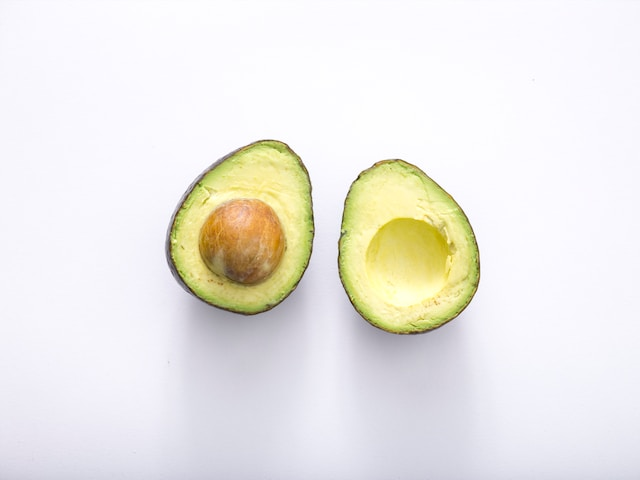
-
Yeast Dough: Ingesting yeast dough can rise and cause gas to accumulate in your dog's digestive system, potentially causing their stomach or intestines to rupture.
-
Bones and Fat Trimmings: Both cooked and uncooked bones raw meat can splinter and cause choking or severe damage to the dog's mouth, throat, or intestines. Fat trimmed from meat, both cooked and uncooked, can cause pancreatitis in dogs.
-
Salt and Salty Foods: Large amounts of salt can produce excessive thirst and urination, or even sodium ion poisoning in pets. Food products containing too much salt such as potato chips, salted popcorn, etc., are toxic human food.
-
Fruit Pits and Seeds: Many fruit pits and seeds, like those of peaches, cherries, and plums, can be harmful due to their cyanide content and also pose choking hazards.
-
Corn on the Cob: This is a common choking hazard and can cause intestinal blockage.
Household Products
Certain typical household supplies and products can lead to pet poisoning. Remember, dogs are very curious and they can jump and, sometimes, open cabinets and cupboards. That's why, as responsible dog owners, you must store the following products in a secure place to avoid poisoning your furry friend.
-
Cleaning Agents: Many household cleaning products like bleach, detergents, and disinfectants are toxic to dogs.
-
Human Medications: Common medications such as ibuprofen, acetaminophen, and prescription drugs can be very harmful to dogs. Place your medications in a sealed, secure container where your dogs can't reach.
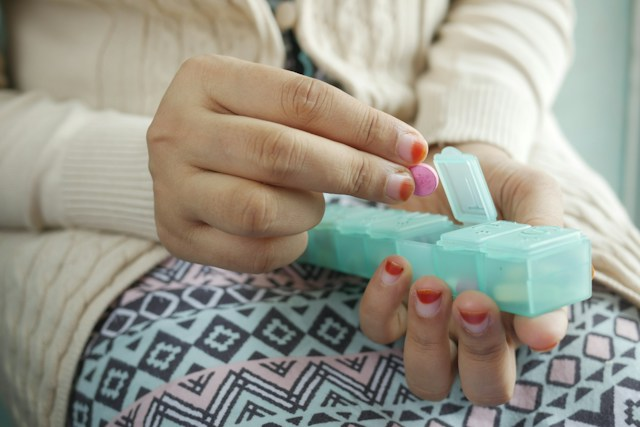
-
Antifreeze: Often contains ethylene glycol, which is extremely poisonous to dogs even in small amounts.
-
Rodenticides and Insecticides: Rat poison, ant baits, bug sprays, and other pest control products can be lethal to dogs.
-
Fertilizers and Plant Food: Some garden products can be hazardous if ingested by dogs. It's best to always store these products in a secure place, away from your dog's reach.
Plants
Many common household plants can be toxic to dogs if ingested, and pet owners need to be aware of these potential dangers. Here are a few:
-
Lilies, Azaleas, Tulips, and Daffodils: Many plants and flowers can cause a range of symptoms from gastrointestinal upset to more severe reactions like kidney failure in dogs.
-
Sago Palm: All parts of this plant are toxic, but the seeds are the most toxic part. Ingestion can cause vomiting, diarrhea, and, in severe cases, liver failure.
-
Aloe Vera: While beneficial for humans, aloe vera can cause vomiting, diarrhea, and lethargy in dogs.
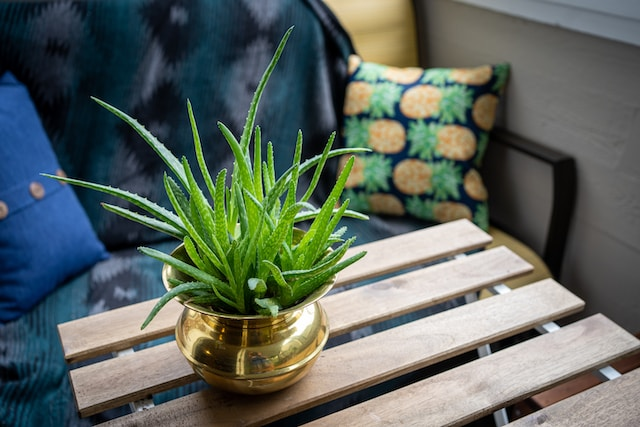
-
Poinsettia: Though often said to be highly toxic, poinsettias are only mildly toxic to dogs, causing mouth and stomach irritation and sometimes vomiting.
Other Items
Here are other staple household items you should be wary of if you have dogs at home.
-
Automotive Products: Besides antifreeze, other automotive products like brake fluid and engine oil can be toxic to dogs.
-
Batteries: Can cause ulceration in the mouth, esophagus, and other parts of the digestive tract.
-
Coins, especially Pennies: High concentrations of zinc can cause hemolytic anemia.
-
Fabric Softeners and Laundry Detergents: These can cause ulcers in the mouth, esophagus, and stomach.
-
Essential Oils and Diffusers: Some essential oils can be harmful to puppies if ingested or inhaled in large amounts.
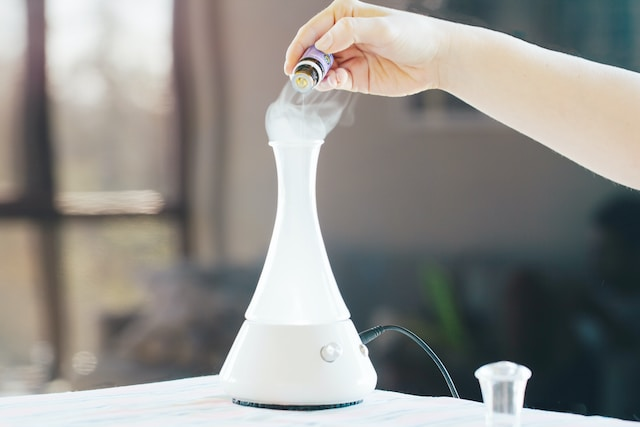
-
Art Supplies: Certain art supplies like paints, markers, and solvents can be toxic to puppies.
-
Toxic Fumes: Fumes from household items like paint, varnish, and certain types of glue can be harmful if inhaled by puppies.
-
Tobacco Products: These can be very harmful if ingested by puppies, leading to serious health issues.
Non-Toxic But Dangerous Household Items for Dogs
While some household items may not be toxic to dogs, they can still pose significant dangers due to their potential to cause physical harm, obstruction, or other health issues. Here are some non-toxic but dangerous household items for dogs:
-
Small Toys and Objects: Small toys, especially those with detachable parts, can be choking hazards or cause intestinal blockages if swallowed.
-
Cooking Utensils and Cutlery: Items like knives, forks, skewers, and other sharp utensils can cause injury if chewed or swallowed.
-
Electrical Cords: Chewing on electrical cords can lead to electric shock, burns, or even electrocution.
-
Socks and Clothing: Dogs often chew and swallow pieces of clothing, which can lead to gastrointestinal blockages.
-
Rubber Bands and Hair Ties: These small items can easily be swallowed, leading to intestinal blockages.
-
Plastic Bags and Wrappers: Ingesting plastic can cause choking or blockages in the digestive tract.
-
String, Yarn, and Ribbon: These can be particularly dangerous if swallowed, potentially causing intestinal obstruction and a condition known as a linear foreign body.
-
Coins: Swallowing coins can lead to choking, and in some cases, metal poisoning due to zinc or other metals.

-
Bones: Cooked bones, particularly poultry bones, can splinter and cause choking or damage to the gastrointestinal tract.
-
Household Tools and Hardware: Items like nails, screws, and small hardware can be ingested, leading to internal injuries or blockages.
-
Fabric Items and Bedding: Pieces of fabric, stuffing from pillows or toys, can lead to gastrointestinal issues if ingested.
-
Gardening Supplies: Items like plastic gardening gloves, plant pots, and certain types of mulch can be harmful if chewed or swallowed.
Signs Of Food Poisoning In Puppies
Recognizing the signs of food poisoning in puppies is crucial for timely and effective treatment. Puppies are particularly vulnerable due to their size and developing immune systems. Here are common symptoms indicating your puppy has ingested toxic food or items:
-
Vomiting: One of the most common signs, vomiting can occur soon after ingesting the toxic substance.
-
Diarrhea: Like vomiting, diarrhea is a common symptom of food poisoning, and it may or may not contain blood.
-
Lethargy or Weakness: A poisoned puppy may appear unusually tired, weak, or uninterested in normal activities.
-
Loss of Appetite: Refusing to eat is a sign something is wrong, especially if your puppy is usually eager to eat.
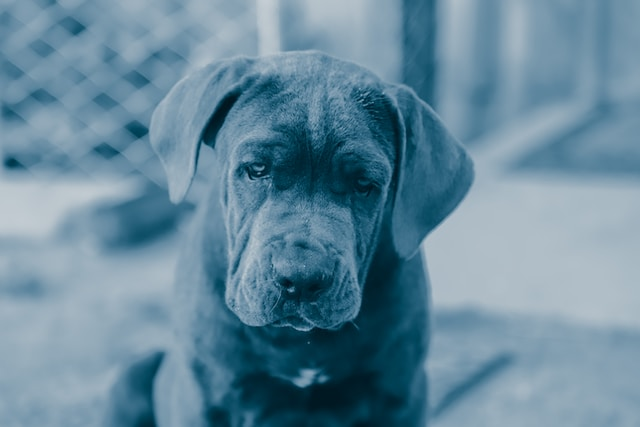
-
Abdominal Pain or Swelling: Your puppy may show discomfort or pain in the belly area, or the abdomen may appear swollen.
-
Excessive Drooling or Salivation: This can be a reaction to the taste or irritation caused by the toxic substance.
-
Tremors or Seizures: In severe cases, toxic substances can cause neurological symptoms like tremors, seizures, or even coma.
-
Difficulty Breathing: Some toxins can affect respiratory function, leading to difficulty breathing, coughing, or wheezing.
-
Changes in Urination: Changes in the frequency, color, or smell of urine can be indicative of poisoning, especially in the case of certain toxins.
-
Dilated Pupils or Changes in Eye Appearance: Some toxins can cause visual disturbances or changes in pupil size.
-
Gums Color Changes: Pale, blue, yellow, or bright red gums can indicate a serious problem.
What To Do In Case Of Accidental Toxic Substance Ingestion
If you suspect your puppy has ingested a toxic substance, immediate action is crucial. Here are the steps you should follow:
-
Remain calm and act quickly. Panicking can stress your puppy further and delay the necessary actions.
-
Identify the substance, if possible, and bring it with you. Keep any packaging or remnants of the substance, as this will help the veterinarian determine the best course of treatment.
-
Do not induce vomiting unless advised by your veterinarian. In some cases, vomiting can worsen the situation, especially if the substance is corrosive or can cause aspiration.
-
Contact your veterinarian or emergency clinic, immediately. Explain the situation clearly, including what the puppy ingested, how much, and when.
-
Follow professional advice. They may advise you to bring your puppy in immediately or provide specific first-aid steps to take at home.
-
Keep the puppy calm and comfortable. Avoid unnecessary stress or movement, especially if the puppy is showing signs of pain or distress.
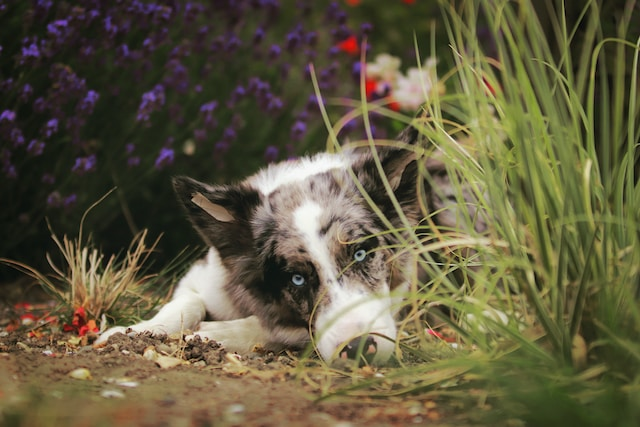
-
Do not use home remedies without consultation. Avoid giving any home remedies or medications without consulting your vet, as some can exacerbate the situation.
-
Prevent future incidents. Once your puppy is safe, take measures to prevent future incidents by puppy-proofing your home and keeping all toxic substances securely out of reach.
FAQs
How can I safely store medications to keep them away from my puppy?
Store all medications, whether prescription or over-the-counter, in secure cabinets or containers well out of your puppy's reach. Never leave medications on countertops or in places where a curious puppy could access them.
Why is chocolate dangerous for dogs?
Chocolate is dangerous for dogs because it contains theobromine and caffeine, two stimulants that dogs cannot metabolize effectively. Especially baking and dark chocolate, even a tiny bit, can lead to vomiting, rapid heart rate, seizures, diarrhea, and in severe cases, even death.
Can dog eat raw eggs?
Feeding raw eggs to dogs is generally not recommended due to the risk of bacterial contamination like Salmonella and a protein in egg whites, avidin. These can interfere with the absorption of the B vitamin biotin, potentially leading to skin and coat problems.
Is raw meat safe to eat for puppies?
Feeding raw meat to puppies is risky due to the potential for bacterial contamination like Salmonella and E. coli, which can cause serious illness in both puppies and humans. It's important to consult with a veterinarian before making any significant changes to a puppy's diet.
Are there any safe alternatives to toxic household items?
Yes, there are many pet-safe products available, including cleaning agents, insect repellents, and fertilizers. Always look for “pet-friendly” labels when purchasing such items.
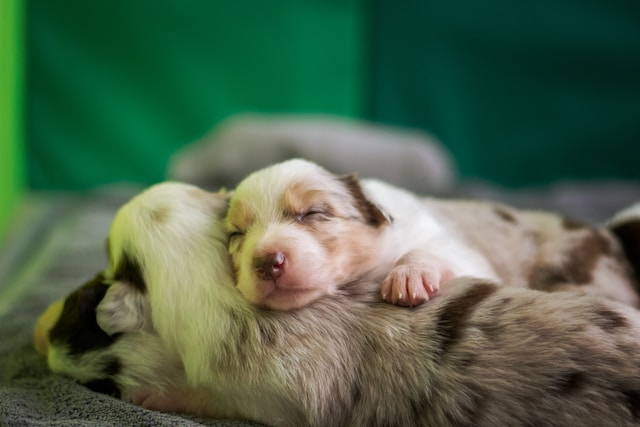
Dog Proof Your Home with Puppy Fever Pro Products
Many human foods and staple household items are not safe for dogs. Some foods can even be healthy and delicious for us, but deadly to our beloved canine companion. Also, many household items, especially cleaning products contain ingredients that can cause harm to our dogs. That's why we must be wary of the food items we feed our pets and the storage of our household products and cleaning supplies.
Start by puppy-proofing your home with Puppy Fever Pro! We have a wide collection of dog products like crates, kennels, gates, doors, and accessories your puppies will surely enjoy. For more dog owner tips and tricks, visit our blogs!
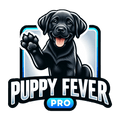

Leave a comment